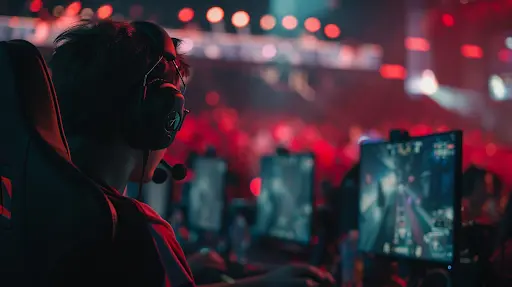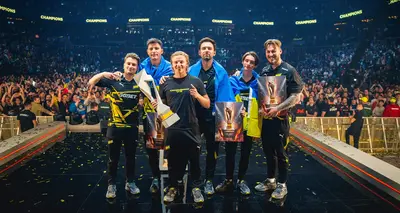The Relationship Between Traditional Sports and Esports: A Detailed Examination
Until nearly a decade ago, many experts were skeptical about how seriously esports could be taken. And we get it — at the end of the day, this form of competition has nothing to do with the physical activity that seems to be an integral part of traditional sports. Today, esports is one of the official Olympic disciplines recognized by the International Olympic Committee. So, can you say that esports is a form of sport? And if that’s the case, what do traditional sports and esports actually have in common, exactly?
Is Esports a Real Sport?
Esports meets all the required criteria to be considered a real sport. Dana White, president of the UFC, says all you need to create a new sports discipline is:
- two or more competing sides
- someone watching
Of course, he said this in the context of the fact that he thinks fighting is the oldest discipline in history. However, if we apply those criteria to what esports is, there's not one reason not to classify it as a sport!
Moreover, nearly all research and sports theorists recognize esports as a form of sport, given its competitive and organized nature. Virtually the only thing that separates esports from sports is the aspect of physical activity. Just as traditional sports require professionals to:
- Plan and apply complex strategies during a match
- Prepare tactically for various game scenarios
- Coordinate and react to changing environment
- Communicate effectively within the team
- Maintain the ability to concentrate under pressure
Can Online Gambling Be Classified as Esports?
It's not entirely clear whether gambling websites or all types of online casinos should be classified as esports, and especially not when they're as elaborate as these types of sites: https://sizzlinghot-spot.com/kasyno-online/.
However, generally speaking, online gambling is not classified as esports due to its randomness. Still, we asked several esports experts, and they do see some similarities. For example, in games like Hearthstone or Teamfight Tactics, players have to make decisions similar to those in poker, such as:
- balancing risk and reward
- reading opponents
- strategical resource management
- bluffing
Well, we know, that’s poker, and it’s that one gambling game that truly stands out for its skill cap. However, by using this example, you can see that all you need to bring online gambling closer to esports is to:
- add strategic elements
- incorporate real-time competitive formats
- offer live-streaming and spectator tools
- create a transparent and fair play environment
Of course, since gambling games are mainly made for the sake of having fun rather than competition, they usually contain much more random elements, and we don’t expect to see a big shift in this matter anytime soon.

Esports as an Olympic Sport
As we mentioned at the beginning of this article, esports has been recognized as an Olympic sport, with the first Olympic Games taking place in Singapore in June 2023.
However, it is important to note that all the games covered in these competitions must be related to traditional Olympic sports. These include games such as:
Will Esports Be in The Next Olymipcs?
Although the International Olympic Committee explores the possibilities of esports and gaming every few years, we likely won't see esports at the Olympics in the coming years. And even if we do, it won't have as much coverage as traditional sports, that’s for sure.
The main problem is the issue of brutality, which is a natural part of games like Counter-Strike, Tekken, or League of Legends. Since the Olympics are designed to promote values such as respect for one's opponent, violent video games can be considered contradictory to these values due to their promotion of violence. Like, even sports such as boxing are regulated for excessive brutality! Plus, an independent analysis by our market experts strongly suggests that many Olympic Games sponsors would prefer to avoid sponsoring gaming events.
Will Esports Continue to Grow?
Esports is surely gaining popularity, but its biggest concern for its future development lies in regulations from video game developers. For example, in a sport like tennis, no one cares about having a monopoly on the biggest tournaments. Moreover, the International Tennis Federation even encourages and sometimes sponsors independent events themselves, whereas in esports, companies that created the game often want full control over how the biggest tournaments are played.
This control can limit the growth of the esports ecosystem by restricting who can organize tournaments and how players can participate. So, for esports to continue its growth trend, it might require a more open approach where independent tournaments could operate alongside developer-sanctioned events. But will it happen? Well, we shall see.
Article info
Gaming
Related articles













Comments